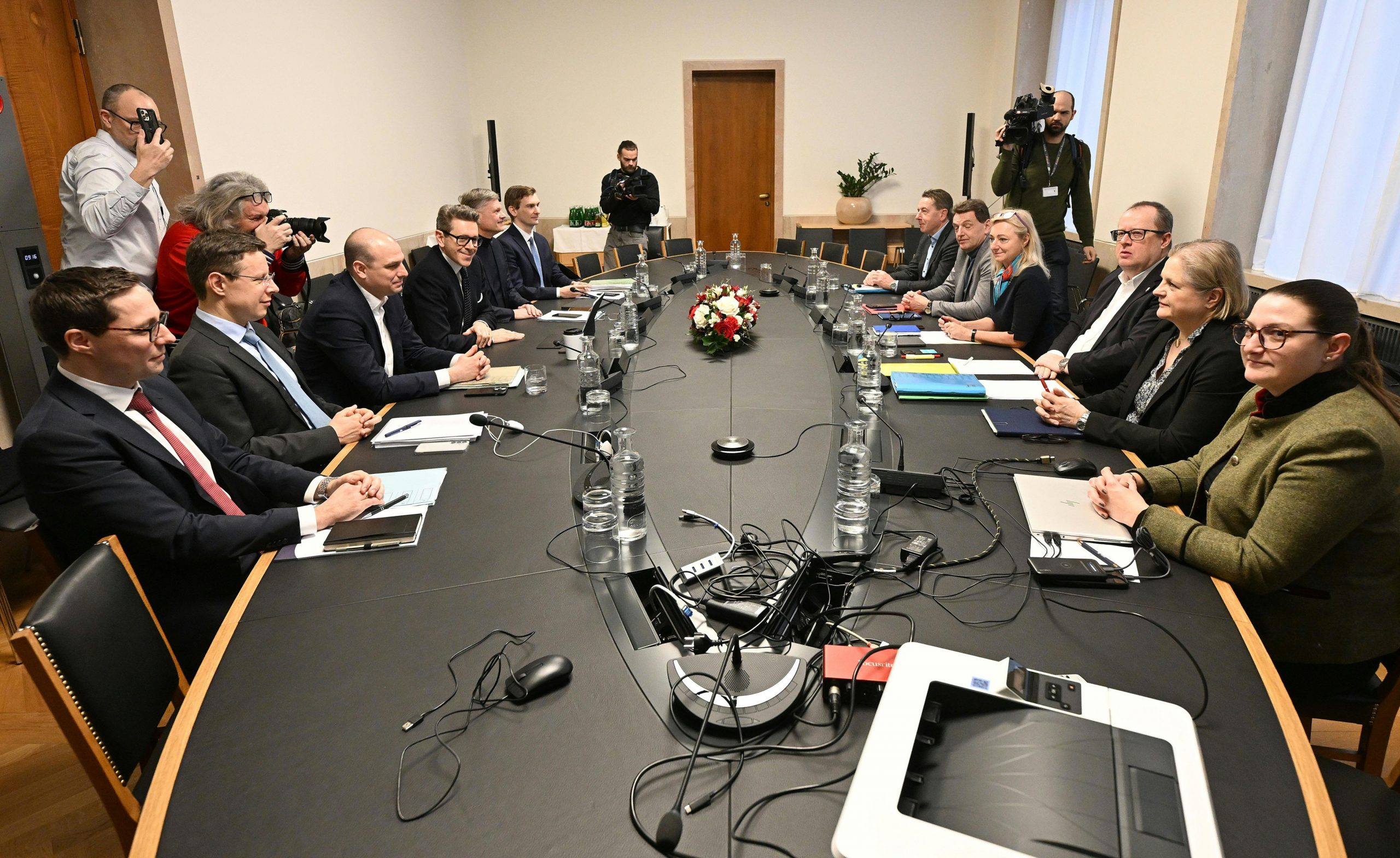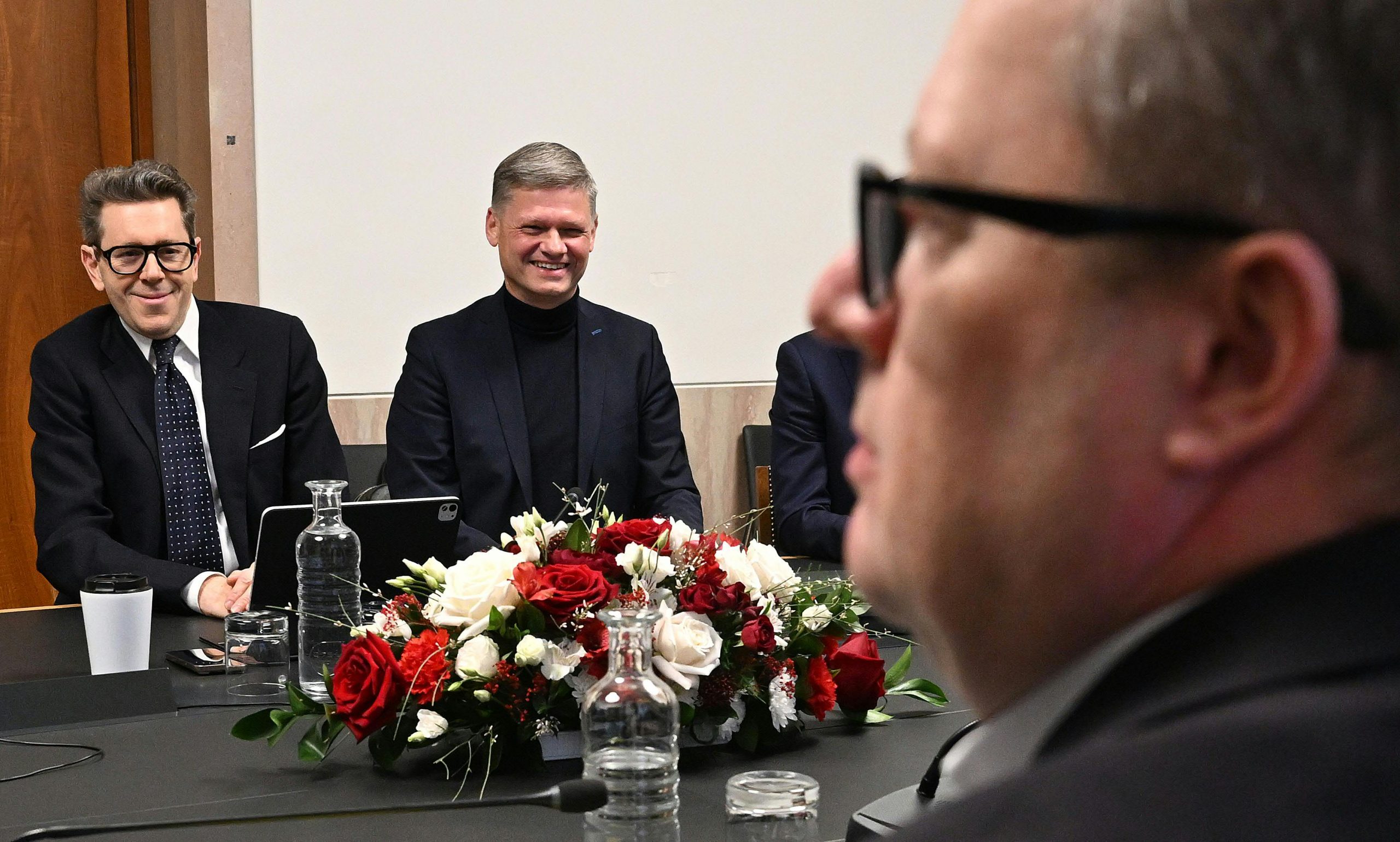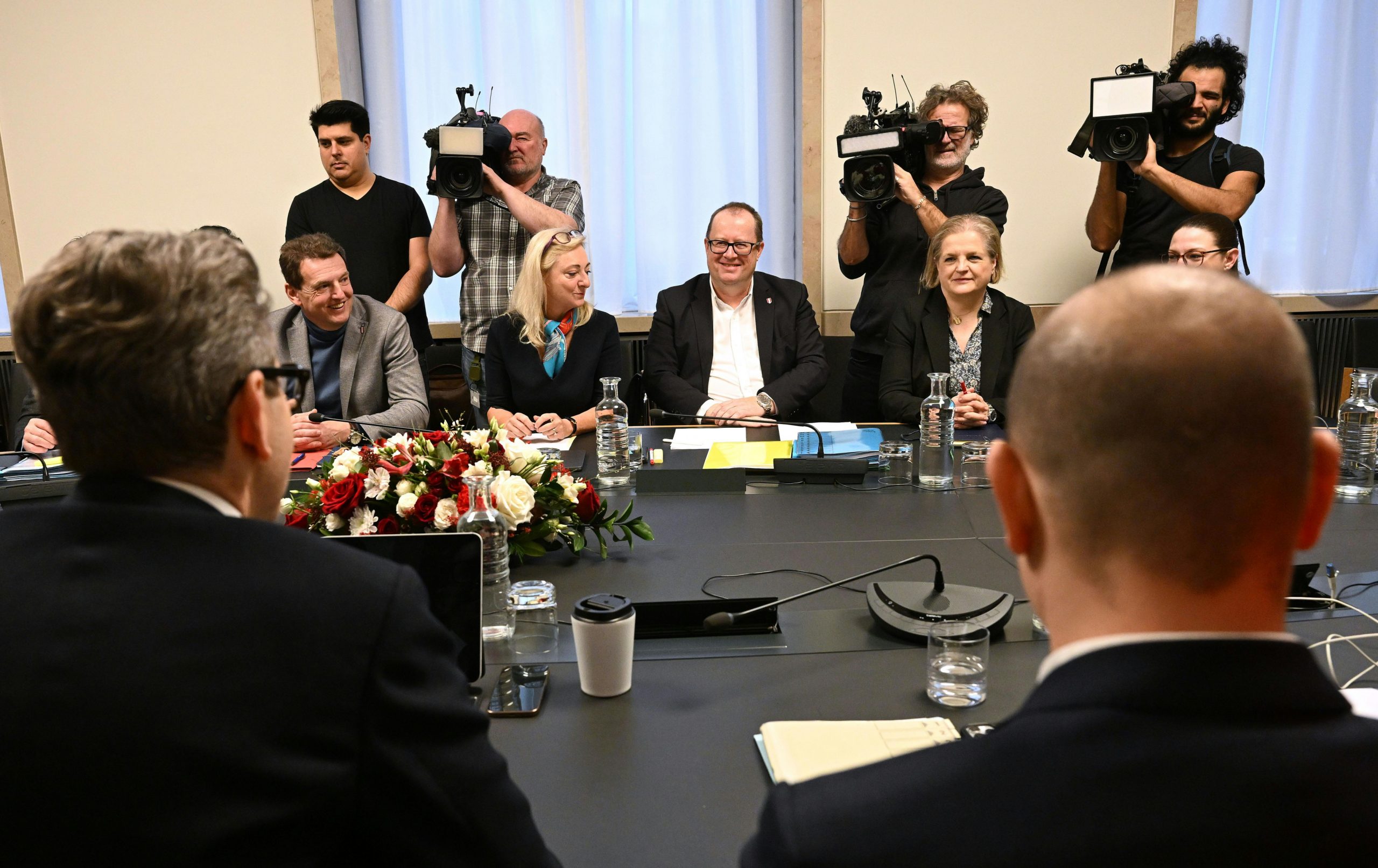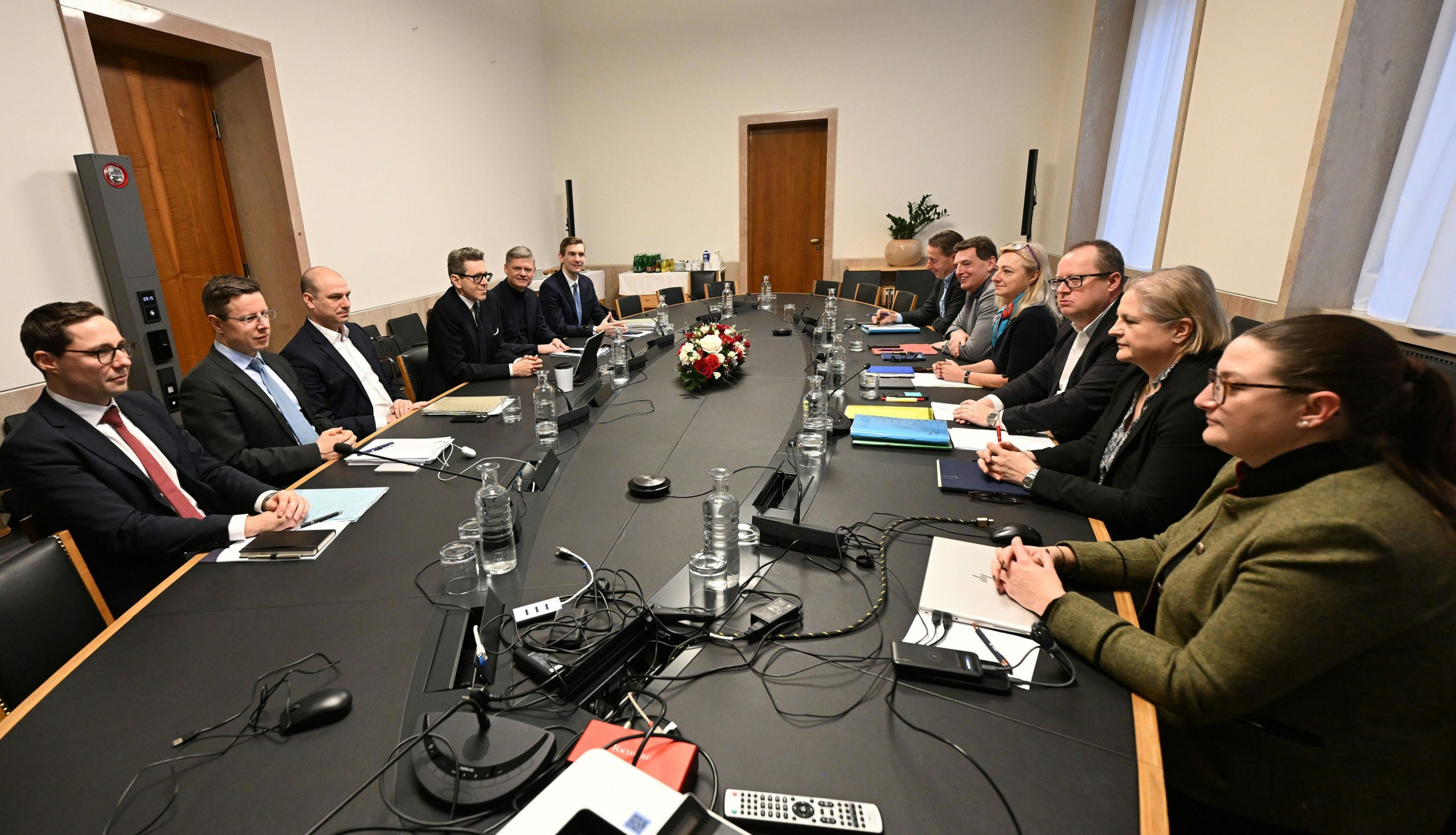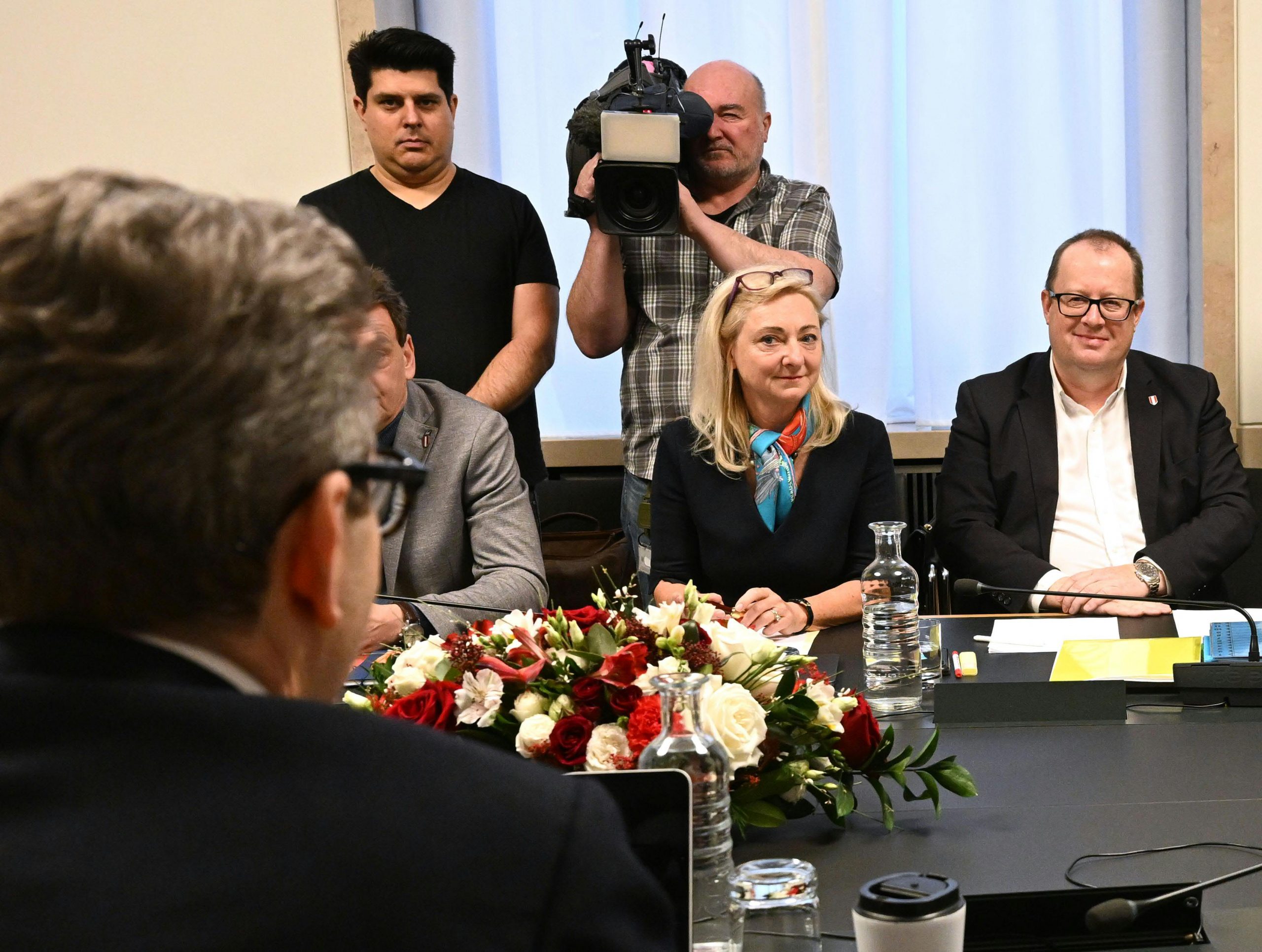Coalition Negotiations Continue - But Brief Discontent at FPÖ
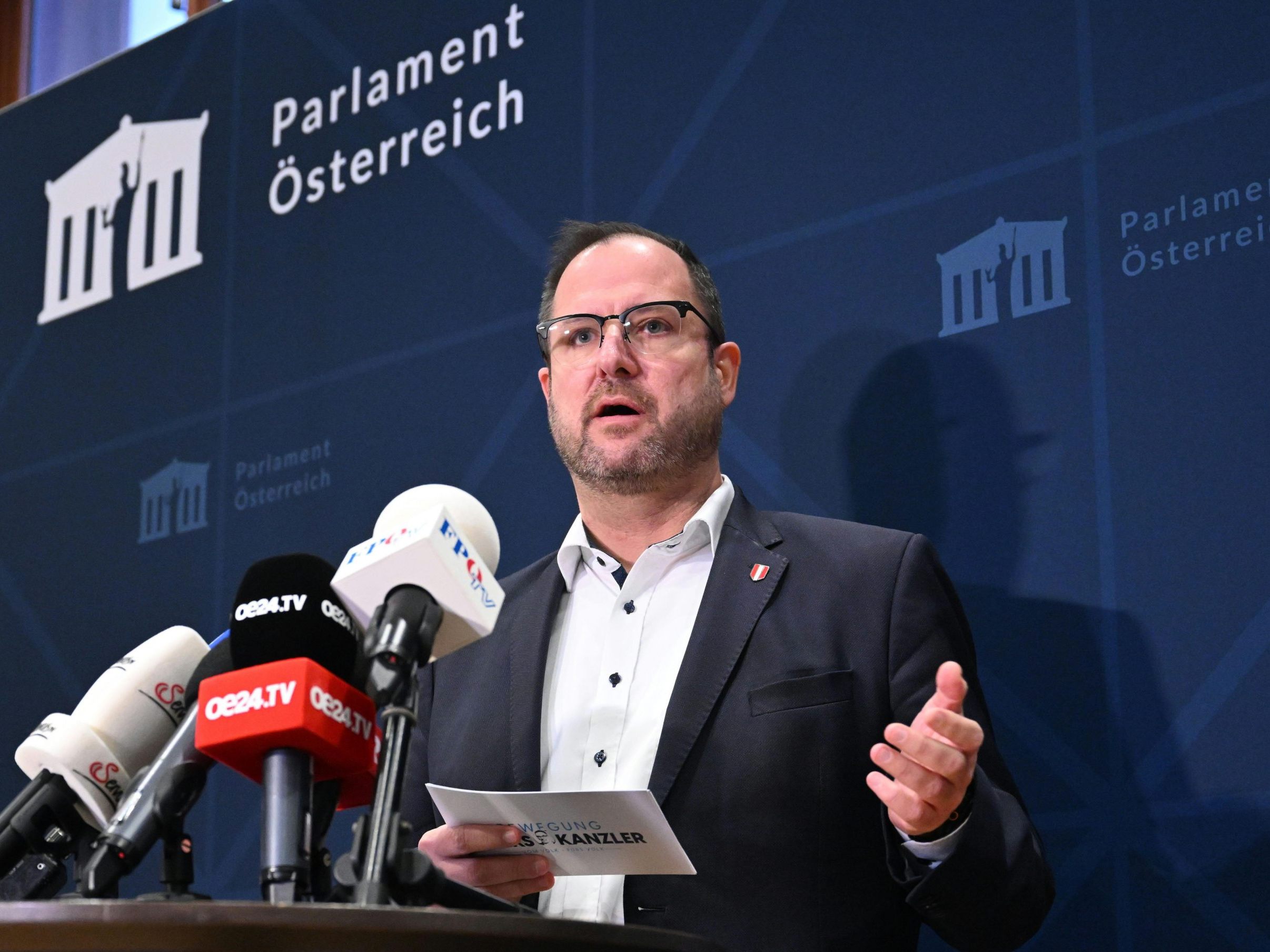
Right at the start, there was a bit of a hitch: The FPÖ withdrew for internal consultations shortly after the start of the "Media" subgroup due to disagreements. Sharp criticism of the FPÖ's media policy demands, including an end to the ORF household fee, came from the Greens, who warned of a "media policy Orbanisation" and wanted to see the ÖVP challenged.
The FPÖ negotiators of the media group withdrew from the negotiation room shortly after the start of the meeting in the morning to consult internally, as FPÖ General Secretary Christian Hafenecker told APA in parliament. After this short interruption, the talks resumed.
The Freedom Party took issue with the fact that Kurt Egger, media spokesman for the ÖVP, had invited the media associations to a "personal conversation" on Thursday, this probably not coincidentally directly after the conclusion of the first round of negotiations, as it was said from the FPÖ. Egger had already stated on Monday that in view of the "current challenges for the Austrian media landscape", the ÖVP reaffirmed its support for democracy and media freedom. He referred to a letter from the media associations in which the domestic private media associations emphasized on Monday that press and communication freedom is a "constitutionally guaranteed basic right".
"Doorstep" in Parliament
Before the start of negotiations on Thursday, Hafenecker and Chamber of Commerce President Harald Mahrer (ÖVP) held a "doorstep" in front of journalists in the "Plenary Lounge" in parliament, where the substantive concerns of the negotiating partners were reaffirmed. Scheduled for Thursday were talks led by Hafenecker and ÖVP Minister Susanne Raab on the areas of culture and media - with media leading the way. The group under FPÖ man Hubert Fuchs and Mahrer is dedicated to the topic of finance and taxes. Economy and national defense are also on the agenda. The negotiations are expected to continue into the early evening, with no media statements planned afterwards.
Regarding the media topic, Hafenecker said he wanted to establish that the FPÖ stands "for media plurality", "even if you don't believe us". He also referred to a letter from FPÖ leader Herbert Kickl to the editors and publishers in which he had stated that he was seeking an "open dialogue" with the media.
Of course, it will be "necessary to repair the media funding" and to "adapt" it to the state of technical conditions. When asked, Hafenecker pointed out that it is simply the case that there are more and more online media - "whether they are right-wing conservative media or others". "This should also be taken into account." It is clear that a media funding system has been "cobbled together" where "the established media have settled", Hafenecker said about the current situation.
FPÖ Against ORF Household Fee
Regarding the ORF, Hafenecker once again insisted on the FPÖ's demand for an abolition of the ORF household fee. This was one of the central election motives of the FPÖ electorate, he emphasized. "Public broadcasting must be financed from the budget," he stressed. A corresponding "commitment" had already been given during the 2017 negotiations between the then turquoise-blue government - "we will take corresponding proposals into the negotiations".
Hafenecker tried to dismiss concerns that this would mean greater political interference: The accusation that "one wants to put the ORF on a political leash always misses the mark". There needs to be secure financing - he could imagine a solution via the budget that goes beyond the legislative period, "so that the ORF does not have to renegotiate the budget after every election".
Greens Criticise
Sharp criticism came from the Greens on the subject of media. "Words are now followed by actions. What FPÖ media spokesman and government negotiator Christian Hafenecker announced today is nothing less than the logical next and decisive step in the blue script of media-political Orbanisation," said the Green media spokeswoman Sigrid Maurer in a press release.
"Instead of relieving the budget, Hafenecker suggests financing the ORF from the budget in the future and cutting the funds by 15 percent." This is "dangerous in terms of media policy" because it puts the ORF in a "massive dependence on politics and weakens it editorially". The FPÖ wants to rob the population of not only independent information but also a piece of Austrian identity by weakening the ORF. "Preventing this is the task and responsibility of the ÖVP".
Another central point of the FPÖ is the "processing" of the Corona measures they demanded. Hafenecker confirmed in his statement that he envisages a model similar to Lower Austria's.
Mahrer said the goal is to relieve citizens and entrepreneurs, and the simplification of the tax system should also be in focus. Incentives must be created so that more work is also worthwhile, he referred to his proposal of a "performance flat tax": The WKÖ president had ventilated this idea of a flat tax of 20 percent, which should also apply to additional earnings in retirement. "Overtime would also fall into this system," Mahrer said on Thursday.
NEOS with Criticism
Criticism came from the NEOS, for whom a flat tax for pensioners is not enough. A relief for performance must "apply to everyone who works and achieves something, regardless of age or employment contract," said deputy club chairman Nikolaus Scherak.
On the budget, both negotiators referred to the basic decision already made, which is expected to save around 6.4 billion euros by 2025 - and that without new taxes, which should enable the deficit to be reduced to less than three percent of GDP. The task now is to work out the budget path for seven years, said Mahrer, who was optimistic.
Coalition Negotiations: Subgroups Since Monday
The first round of thematic discussions is expected to conclude on Friday. Education, pensions and health as well as foreign and European politics will be discussed. It is very likely that the subgroups will need several more discussions and then the steering groups of the FPÖ and ÖVP with the party leaders Herbert Kickl and Christian Stocker will be in charge. There is no fixed timeframe for the formation of a possible government.
Negotiations in the subgroups had already started on Monday. In the first few days, areas such as infrastructure and transport, internal security, agriculture, climate and family were discussed. Possible agreements and compromises have not yet become public. "Hot issues", such as the topic of Sky Shield and EU politics, could reportedly only be dealt with by the party leaders.
(APA/Red)
This article has been automatically translated, read the original article here.






